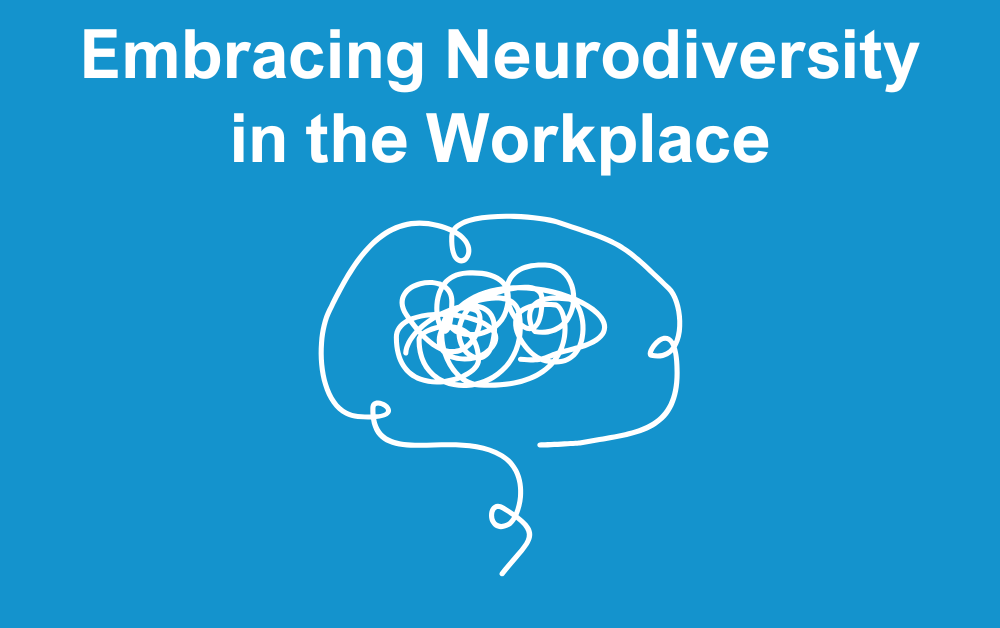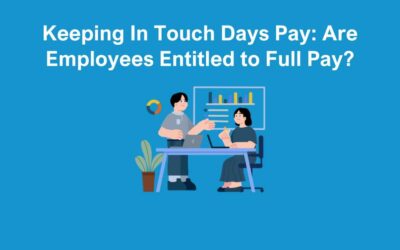Neurodiversity refers to the natural variations in the human brain and encompasses forms of neurodivergence such as autism, ADHD, dyslexia, and dyspraxia. This term highlights the vast range of variations individuals perceive and process information, communicate, and interact with the world. Neurodiversity in the workplace and Neuroinclusion are terms we are hearing a lot more in workplaces. This represents a focus within organisational equality, diversity, and inclusion that aims to embrace and value diverse styles of information processing, learning, and communication.
In recent years, organisations have begun to recognise the benefits of embracing neurodiversity. These employers are moving away from a one-size-fits-all approach to a more inclusive and innovative workforce.
In this guide, we will explore the importance of neurodiversity in the workplace. We will look at strategies for creating an inclusive environment, and the benefits that embracing diverse cognitive abilities can bring to organisations.
Why Neurodiversity Matters
Historically, workplaces have been designed with a neurotypical majority in mind. This often unintentionally marginalising those who think and process information differently. However, neurodiverse individuals bring unique strengths that can drive innovation and creativity. Research shows that neurodiverse teams can offer new perspectives, problem-solving approaches, and enhanced attention to detail. By fostering an environment that embraces neurodiversity, businesses can unlock these talents and improve performance.
Valuing neurodiversity in the workplace is not just about compliance or ticking a diversity box. It is about creating a culture where everyone can thrive, be productive, and contribute to the organisation’s success. When employees feel understood and supported, they are more likely to be engaged, loyal, and also innovative.
How to Support Neurodiversity in the Workplace
Neurodiverse Recruitment
Recruitment processes should be designed to reduce bias and consider a wider range of skills and abilities. This begins with intentional role planning, where the focus is on understanding the core responsibilities and skills required for the job. Highlighting this allows room for diverse strengths and abilities to shine. Furthermore, organisations should create inclusive job descriptions that are clear, concise, and free from unnecessary jargon, ensuring they focus on the key competencies rather than non-essential attributes that might deter candidates.
Careful filtering of applicants is also crucial, avoiding overly rigid criteria that may overlook potential talent. The recruitment process must ensure that all materials sent to the applicant, including information about the job or assessments, are clear and accessible digitally. It’s also important to use formats that are easy to navigate for individuals with different learning or processing styles. To embrace neurodiversity in the workplace, employers should invite reasonable adjustment requests, signalling their willingness to make accommodations for candidates. This includes offering flexible interview formats or alternative assessment methods.
Tailor Support and Accommodations
Workplace accommodations don’t have to be costly or complex. Small changes like offering flexible working hours, adjusting communication styles, or providing assistive technology can greatly improve a neurodiverse employee’s comfort and productivity. It is important to remember that every individual is different, so managers should be open to discussing and tailoring support based on individual needs.
Provide Training and Awareness
Raising awareness about neurodiversity in the workplace through training can help teams understand and appreciate their neurodivergent colleagues. This can reduce stigma, promote empathy, and help create a more supportive environment. When employees and managers are equipped with the right knowledge, they can better recognise and harness the strengths of neurodiverse individuals.
Foster a Culture of Acceptance and Flexibility
The most neuroinclusive workplaces are those that value flexibility and open communication. Creating a culture where employees feel comfortable discussing their needs without fear of judgment or exclusion is key to supporting neurodiversity in the workplace. Leaders should encourage regular check-ins and cultivate an environment where everyone feels empowered to contribute and ask for support.
The Benefits of a Neurodiverse Workforce
A neurodiverse workforce offers a competitive advantage by bringing fresh perspectives and skills to the table. Here are some of the potential benefits:
- Innovation and Creativity: Neurodiverse individuals often approach challenges from unconventional angles, offering solutions that others may not have considered.
- Increased Problem-Solving Capabilities: Diverse cognitive abilities mean teams can think more broadly and come up with unique ways to tackle problems.
- Attention to Detail: Many employees may excel in tasks requiring focus and precision.
- Employee Retention: Neurodiverse-friendly workplaces are likely to see higher levels of engagement and loyalty from employees who feel valued and supported.
Final Thoughts
Embracing neurodiversity in the workplace is more than just a matter of fairness or legal compliance. It is a business imperative that taps into the full range of human potential. By creating an environment where neurodiverse individuals can thrive, companies can foster innovation, drive performance, and cultivate a truly inclusive culture.
Supporting a neuroinclusive environment is not just about helping individuals fit into the workplace—it’s about transforming the workplace to fit a wider spectrum of human talents and abilities. With the right strategies and mindset, organisations can reap the many benefits that come from neurodiverse teams while promoting a workplace where everyone has the opportunity to succeed. If you would like further advice on neurodiversity in the workplace, contact our HR Experts.







